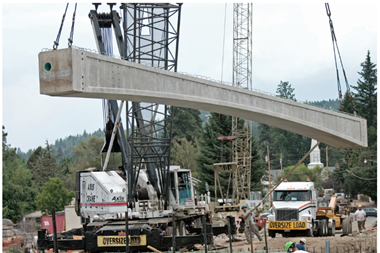Investment managers are anticipating an increase in US infrastructure spending following Tuesday’s election of Donald Trump as the next president.
Late on in his election campaign, Trump pledged to invest $1trn (€912bn) in infrastructure improvements over 10 years, with tax credits offered to private companies to finance projects.
Investors could also take equity in the projects, which Candriam Investors Group estimated could represent $167bn in aggregate.
“This could mean $100bn of additional infrastructure spending per year over the next 10 years and should provide a one-off boost to domestic aggregate demand of around 0.5% of GDP,” Candriam said in a note by Anton Brender, chief economist, and Florence Pisani, head of economic research.
“Given the time lags, this support should show up mainly starting (at the) end of 2017.”
Geir Lode, head of global equities at Hermes Investment Management, said Trump was expected “to take bold, decisive actions in an attempt to fix the US economy – even if Congress manages to lessen the severity of his policies”.
Lode added: “Defence and infrastructure spending will significantly increase, given his campaign promises.”
Ariel Bezalel, manager of the Jupiter Dynamic Bond fund, said Trump’s proposed infrastructure programme via debt issuance could help to stimulate the economy and be quite “inflationary”, creating an environment that would be “negative for rates, and fairly positive for equities”.
Matthew Beesley, head of global equities at Henderson Global Equities, said Trump’s “much vaunted intention to invest aggressively in domestic infrastructure” could act as a significant fiscal stimulus to the US economy, “albeit with a likely lag”.
“Obvious beneficiaries”, he said, would be sectors ”exposed to infrastructure expenditure”, such as industrial and technology companies.
However, according to a study by the American Society of Civil Engineers, a backlog of infrastructure projects in the US could cost $3.6tn by 2020.
David Kelly, chief global strategist at JP Morgan Asset Management, said Trump’s victory in the US presidential election offered little clarity for now on how much can actually be achieved.
“It is not clear which parts of a very ambitious agenda of tax cuts, increased defence and infrastructure spending and health care reform can or will be implemented,” he said.










